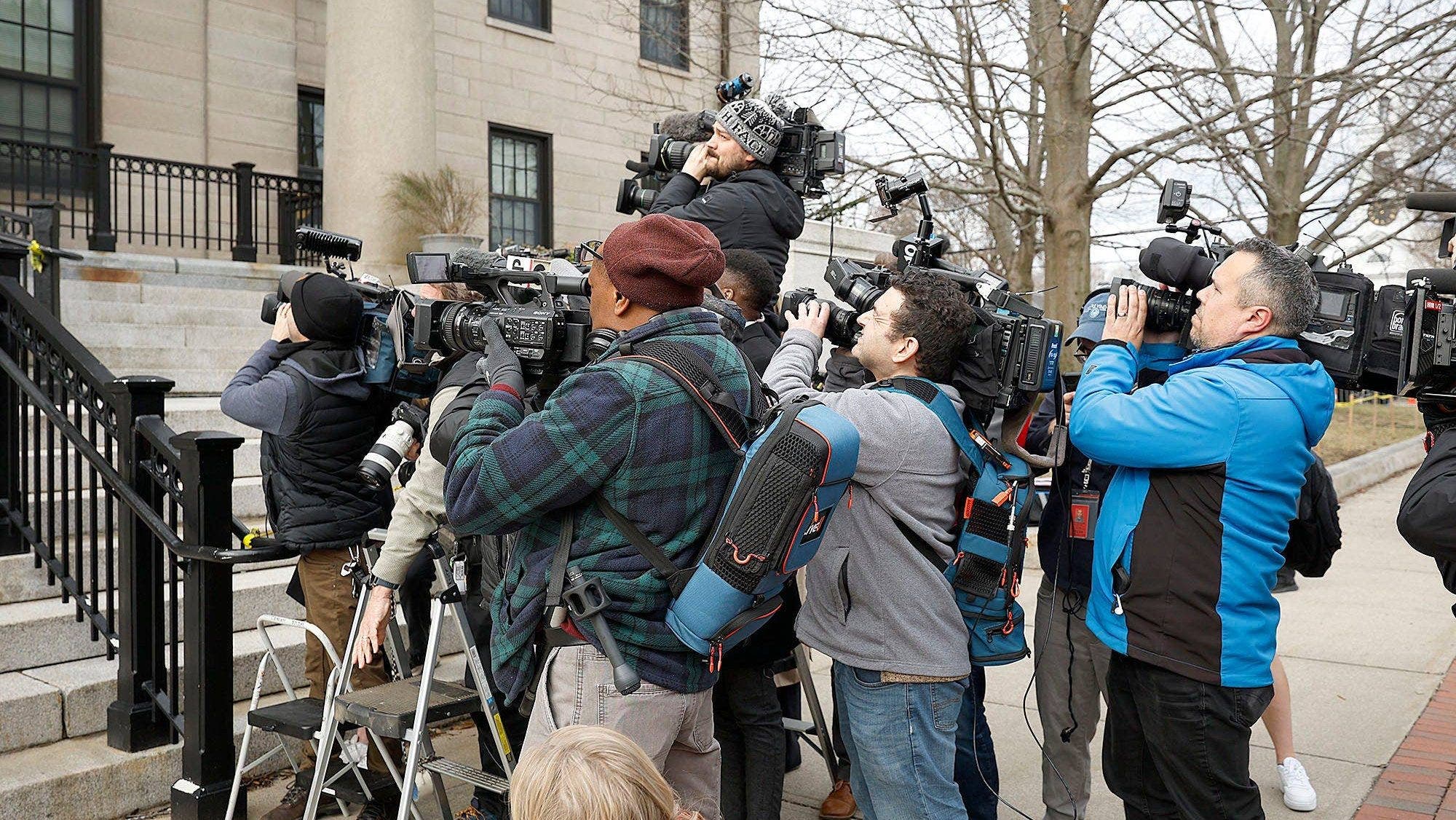“I’m not a scholar,” the voice — that voice, older and husky now, but still recognizable — explained to The Post in a brief phone interview earlier this month. “I’m a guy from The Bronx.”
Over his 85 years, Dion Francis DiMucci has been much more than that: lead singer of the Bronx-based doo-wop legends the Belmonts; solo hitmaker and heartthrob in the pre-Beatles ’60s; heroin addict; comeback artist; mature singer-songwriter; prophet and poet; and, once again, author.
And now with “Dion: The Rock ‘n’ Roll Philosopher,” co-authored with his friend and recovery partner Adam Jablin, DiMucci, the original Wanderer – the last surviving star iof the first wave of rock ‘ n’ roll, with three Top 40 hits in 1958 – has now published the third version of his life story.
The first, “The Wanderer: Dion’s Story” (1988), written with author Davin Seay, was the most straightforward autobiography of the three, the singer recalls. Its follow up, “Dion: The Wanderer Talks Truth” (2011), co-authored by journalist Mike Aquilina, was more essayistic and impressionistic.
“Philosopher” collects the contents of countless diner-booth conversations between DiMucci and Jablin, including reflections the pop icon could only offer 70 years on from the carefree youth he spent on the corner of Crotona Avenue and 187th Street: pleading for extra mortadella, scrapping with rival gangs, confessing at Mount Carmel, perfecting four-part harmonies.
In 1955, when he was 16, Dion attended the annual Italian Feast on Arthur Avenue and there met a beautiful brunette, a recent émigré to The Bronx from the wilds of Vermont, named Susan Butterfield, then 15. “I was, like, ‘Yo, I got girls lined up around the block who want to be with me,’ ” Dion writes in “Philosopher.” But Susan captured his heart.
When Dion saw Susan give directions to the Bronx Zoo to another boy, it rankled the future star—and stirred his creative juices.
“Instead of talking to me and telling me he was unhappy or jealous,” Sue recalled, “Dion wrote ‘Runaround Sue.’ ” That single, two minutes and 41 rocking seconds of tough-guy anguish, rocketed to No. 1 in October 1961, sold a million copies, and landed Dion in the Grammy Hall of Fame and Rolling Stone magazine’s list of the 500 greatest songs of all time. Lou Reed inducted him into the Rock ’n’ Roll Hall of Fame in 1989.
Dion and Susan wed in March 1963, raised three daughters — and remain married today. But that is only because, as Dion wrote in his 1988 memoir, Susan possessed “a high tolerance for unacceptable behavior.”
That included an addiction to heroin, which Dion first snorted at 14 and finally kicked, along with all other drugs, in 1968: the year of his comeback hit, “Abraham, Martin and John,” a folk ballad honoring three giants slain by assassins’ bullets.
“I got sober on April 1, 1968,” Dion recalls in “Philosopher.” Three days later, he watched Martin Luther King Sr. say on television that he didn’t hate his son’s assassin because to do so would “lower myself to his level.” Fueled by an epiphany during a jog — “I got on my knees and asked God for help,” Dion told The Post — he has remained sober ever since.
“Forgiveness is the foundation of all healing,” Dion and Jablin write. “Holding on to unforgiveness attaches you to the offender.”
With a shout-out to Dr. Jordan Petersen and warnings against relativism — defined here as “people making up their own truths” — “Philosopher” betrays a conservative bent that suggests Dion, in political terms, wanders no more.
But the core lessons from the philosopher of rock ’n’ roll — “The?” Dion’s longtime friend, Paul Simon, teases him — are apolitical, divorced from ideology and the entertainment industry that made DiMucci an enduring star.
“Adam,” he tells his co-author, “I want to bring people into our reality. A Higher Reality. How God directs all our thoughts and all our decisions.”
There is also a strong dose of The Bronx. One of the Little Italy neighbors never forgotten was Jackie Burns, a street tough who strode Belmont Avenue, hair greased to perfection, arm tattoos visible through the white tank top, looking “like Conor McGregor . . . that swagger.”
“You couldn’t help but notice him,” Dion recalls. When Jackie’s romance with Flo ended, he replaced the “Flo” tattoo on his left arm with a black panther and got “Mary” tattooed on his right. When that went south, Jackie took up with Janie and covered “Mary” with a dagger. Later, “Rosie” wound up on Jackie’s chest.
Thus was born Dion’s signature hit, “The Wanderer,” which reached No. 2 in early 1962. Today, its author, older and wiser, understands the song differently than when it was a hit. It sounded, initially, like a song about a winner; but the Wanderer is a loser because he eschews commitment.
“It’s truly a darker song than you hear,” Dion writes in “Philosopher.” “The arrangement on the hit record I put together back in 1961 is upbeat and in a major key. If I was recording it today, it would probably be in a minor-chord setting.”
James Rosen is chief White House correspondent for Newsmax and the author, most recently, of Scalia: Rise to Greatness, 1936-1986.




